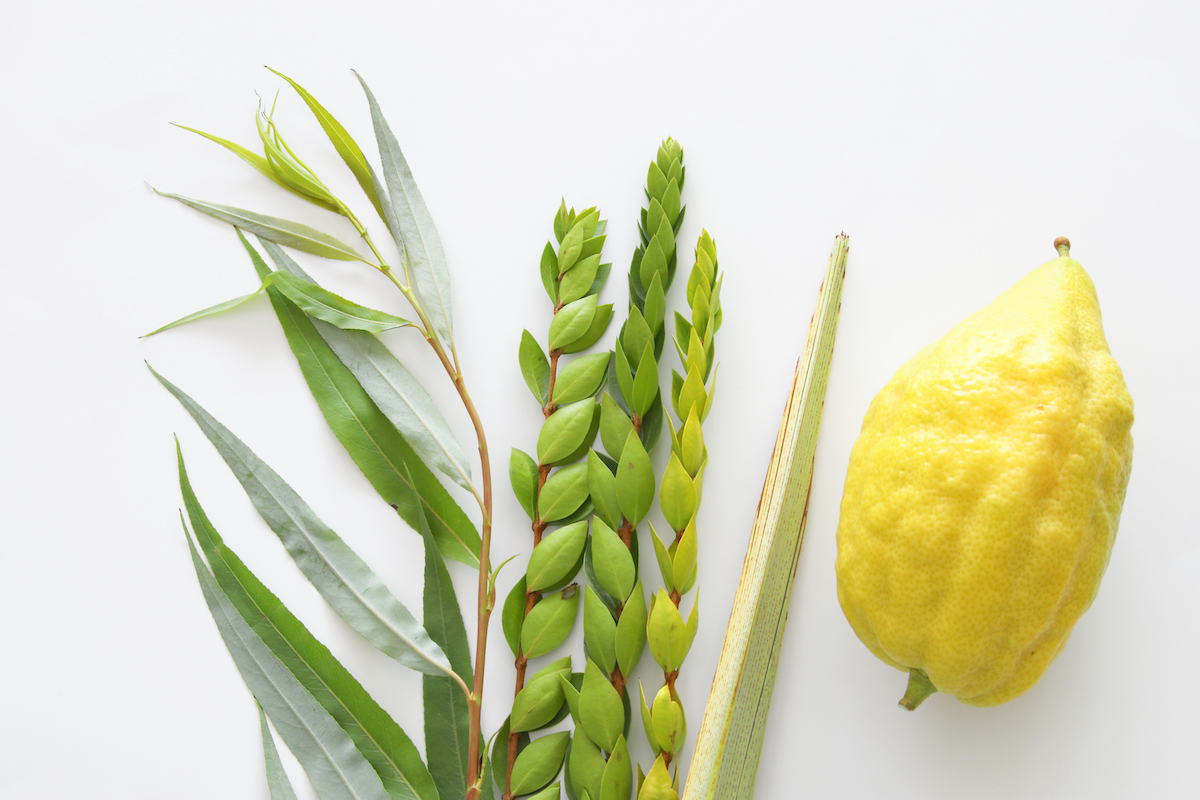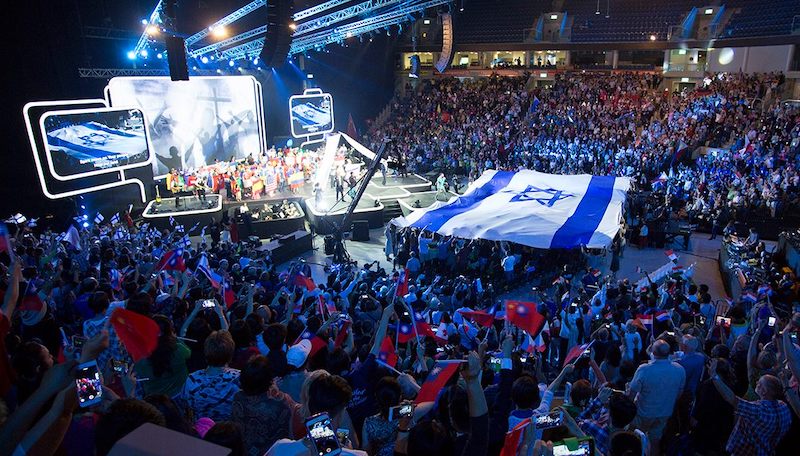Israel celebrates Sukkot, the Feast of Tabernacles
The festival of booths begins at sundown on Monday evening

Sukkot – also known as the Feast of Tabernacles – is the third of three biblical feasts on the Jewish calendar that complete the fall holidays. Sukkot is joyous occasion, following the solemn days of reflection and repentance leading up to Yom Kippur. It is characterized by a celebration of new life, with singing, dancing, and especially a week of festive meals and gatherings in the family sukkah.
The holiday commemorates the plight of the Israelites – 40 years of wandering as nomads in the desert – and the building of a sukkah (a hut or booth in English), to symbolize the temporary shelters that early Jews needed to construct for protection and preservation.
In Israel, schools will be closed starting tomorrow – the day of Erev Sukkot, which begins at sundown on Monday evening – and remain shuttered until after the eighth day. The first and eighth days are observed as a regular Shabbat of rest, without work.
In Jewish communities throughout the country, the sound of hammering is heard as families build and decorate their "hut" – or tabernacle – outside on their property. Those who observe the holiday will inhabit the sukkah for the duration of the seven-day festival according to Deut. 16:13–18.
Since most Israelis live in apartment complexes, many will build their sukkah on their balconies if space permits, otherwise they may build in the public areas next to their buildings, thus creating a communal sukkah for the public. In some neighborhoods, the sukkah will be built at the local kosher restaurant or the synagogues so that all residents have an opportunity to eat their meals under the tabernacle covering.
According to scripture, the week-long festival has an emphasis on the harvest season. Vegetables and fruits – pomegranates in particular – are features of the meal. All feasting, rejoicing and regular life, including sleep, is to take place in these temporary shelters. Scripture tells us that everyone is to celebrate and commemorate this holiday, including foreigners, therefore it is traditional to invite family and friends to partake in at least one meal in your sukkah with you.
“Celebrate the Festival of Tabernacles for seven days after you have gathered the produce of your threshing floor and your winepress. Be joyful at your festival – you, your sons and daughters, your male and female servants, and the Levites, the foreigners, the fatherless and the widows who live in your towns. For seven days celebrate the festival to the Lord your God at the place the Lord will choose. For the Lord your God will bless you in all your harvest and in all the work of your hands, and your joy will be complete.” Deut. 16:13–18
During Sukkot, leaders of the household will often wave a lulav, a tradition performed in accordance with scripture. The lulav is a symbolic arrangement of the Arbat HaMinim, or the “Four Species” – which consist of leaves from a palm, a willow and a myrtle tree – the three bound together along with an etrog, a citrus fruit.
"On the first day you are to take branches from luxuriant trees – from palms, willows and other leafy trees – and rejoice before the Lord your God for seven days." Lev. 23:40

Beyond biblical mandates and rituals, for Jewish believers in Messiah, Sukkot takes on a unique significance. It's a time to remember God's faithfulness – the constant provision and protection of His people – and evokes an outpouring of gratitude to the Lord. The temporary dwelling, the sukkah, represents our reliance upon the Lord for all things, even for our very breath.
As we remember all He has done, we not only look back but look forward to the hope of restoration. For followers of Yeshua, Jesus, Sukkot points to the messianic era – the sukkah serving as a reminder that this current home is temporary and that our permanent future Kingdom home with Him awaits us.
The Messianic connection of Yeshua to the Feast of Tabernacles brings to light the mystery of His incarnation. Sukkot recalls God’s presence within us, the gift of indwelling by His Holy Spirit, as we read in the book of John: “And the Word became flesh and dwelt among us, and we beheld His glory, the glory as of the only begotten of the Father, full of grace and truth.” John 1:1:14
In Greek, the word “dwelt” also means “tabernacled.” When Yeshua became flesh, He inhabited the temporary shelter of an earthly body, knowing He would be eventually be required to leave it. He did this so we might find our home in Him – not in a temporary shelter, but an eternal home in His Kingdom that abides forever.
This promise associated with Sukkot can be seen in Zechariah 14 which extends the invitation to all people to participate in the holiday celebration. Therefore, many Christians around the world typically fly to Israel to participate in Feast of Tabernacle events.
Typically, the ICEJ's Feast of Tabernacles draws up to 5,000 Christians worldwide, joined by another 1,000 local believers. In past years, the event has provided a tremendous boost for the Israeli economy, bringing in nearly $15 million due to the large number of tour groups in need of hotels, bus drivers and guides.

Beyond the financials, the solidarity that comes with the presence of global Christian delegations has been a great encouragement to the body of believers in Israel over the years, both emotionally and spiritually. In fact, the ICEJ was birthed out of the first public Sukkot celebration in Israel in 1980 with the mandate to comfort Israel with support, fellowship and friendship.
Due to the ongoing COVID pandemic and Israel’s current travel restrictions, the International Christian Embassy Jerusalem (ICEJ) is hosting its annual Feast of Tabernacles celebration online, instead of in-person, for the second year in a row.
This year’s online event, “Days of Elijah” will feature both live and recorded sessions and is a unique platform for participants to interact with one another, view daily celebrations, as well as to attend seminar tracks and prayer watches. Like last year, the virtual celebration has the potential to reach many who otherwise would not be able to attend in person.
Click here to register for the ICEJ Days of Elijah conference which begins on Monday evening.

The All Israel News Staff is a team of journalists in Israel.












